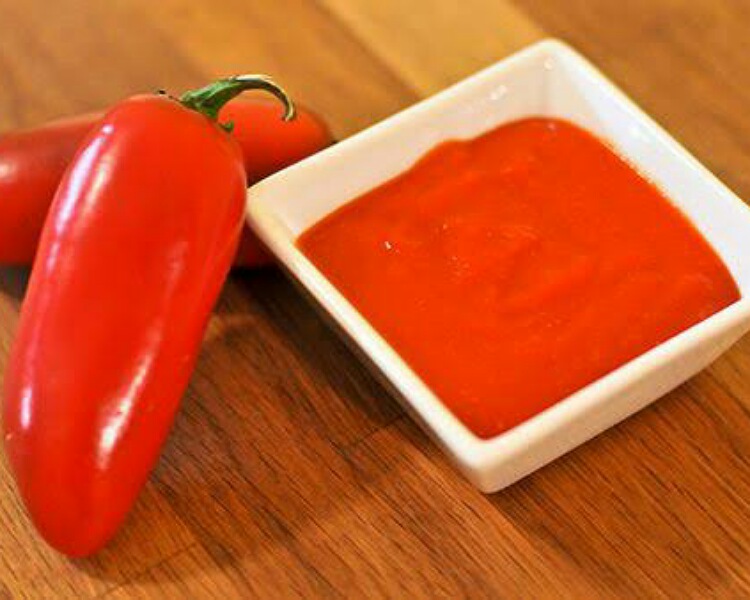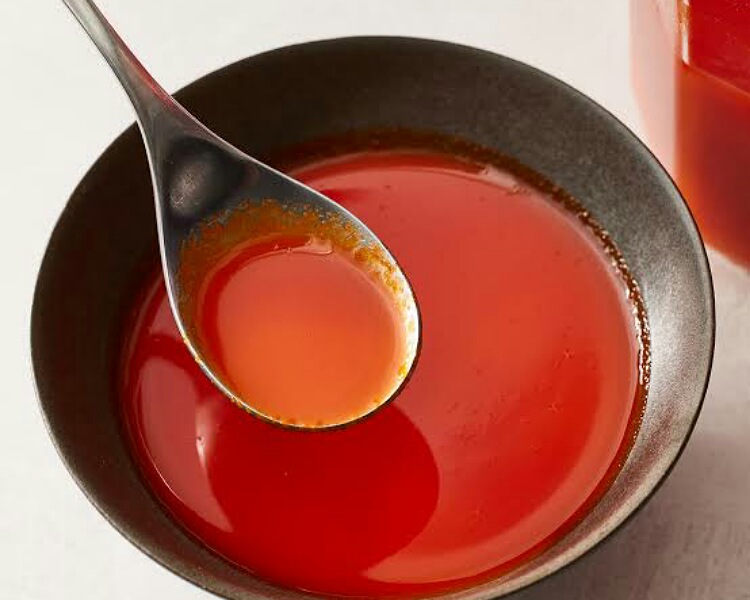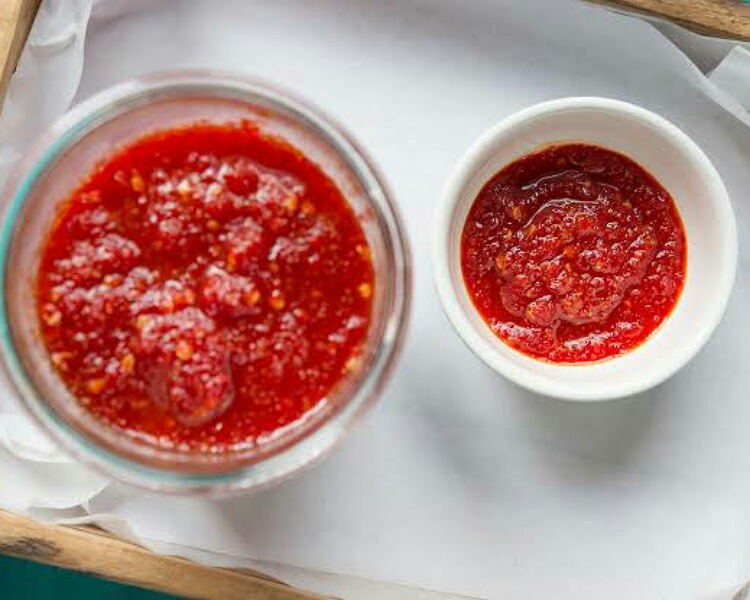Sriracha! It is a spicy sauce that enriches food. It makes boring food into an interesting and flavorful one. And it has some potential health effects too.
What is Sriracha?
Sriracha is a hot sauce. It is spicy due to its chili content. Additionally, it has salt, garlic, distilled vinegar, and sugar in it. There may be added thickeners and food preservatives.
In Thailand, people use it as a dipping sauce for omelets and seafood. Whereas in Vietnamese cuisine, often it is added to plain or fried noodles. It is poured onto spring rolls or used as a plain sauce.

Some like it on burgers, in soups, or on eggs. There are chips in the market with this flavor on them. This sauce is also added to jams, cocktails, or lollipops. The sauce is thicker than other sauces and dips such as tomato ketchup, mustard dips, etc.
Origin and nutritive value
The sauce is categorized as medium heat. Its Scoville scale score is 1000 to 2500 SHU. Its origin and history are debatable.
There are some that state that a woman from Thailand named Thanom Chakkapak first prepared this sauce. She hailed from the town of Si Racha and hence the name.

Its caloric value is not much. 1 teaspoon of the sauce provides just 6 calories. It has 138 mg of sodium and 1.2 grams of carbs. It adds taste and flavor to the food. Along with that, it does affect the body in the following ways.
1. Weight loss
Due to its chili content, sriracha can increase body metabolism. Dietitian Elysia Cartlidge who founded Haute & Healthy Living states:
“One of the main ingredients in sriracha sauce is chili peppers, which contain capsaicin,”
“Capsaicin not only gives the sauce its fiery taste but can also act as a thermogenic chemical, producing heat that may potentially stimulate your metabolism and help burn fat.”
Even studies have confirmed this. It showed that people who ate capsaicin with each meal had better satiety and hence less likelihood of overeating.
2. It causes heartburn
Research has shown that capsaicin causes food to stay in the stomach longer. This worsens acid reflux and heartburn.
Besides chili, garlic in the sauce can also irritate the stomach and add to the heartburn. Garlic also acts by weakening the oesophageal spinster which prevents acid reflux.
3. It increases the frequency of bowel movements
Nutritionist Amanda Sauceda explains:
“The spice in sriracha comes from capsaicin which can irritate your gut leading to a looser bowel movement,”
Capsaicin stimulates vanilloid receptor 1 or TRPV1. This signals the brain that the substance is irritating the intestines. Hence to get rid of it faster, the brain sends a message to increase bowel motility. Since the time for water absorption is less, the stool remains watery and soft. Amanda adds:
“You may even notice you have ‘spicy’ poops,”
There are more pain receptors in the anal region. As capsaicin exits, it also causes burning around there.

4. Allergic reaction
Some commercial sauces add sodium bisulfite to the product. This can trigger an allergy in sensitive people. Melissa Mitri, another nutrition expert states:
“Sriracha may cause an adverse reaction in those with sulfite sensitivity, resulting in wheezing, hives, and stomach upset,”
Read more: Aguachiles: recipe and health benefits!
This is common in people with allergic asthma. They should also avoid other sulfite-containing foods such as shrimp, potatoes, wine, and some condiments.
